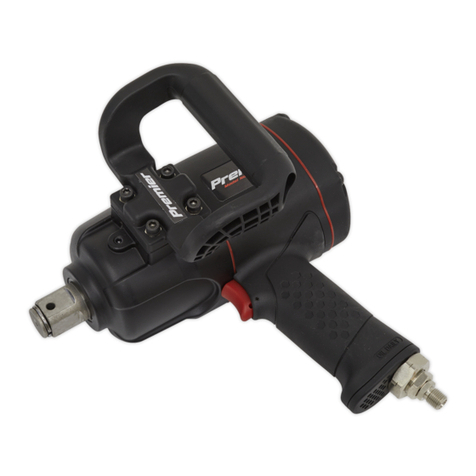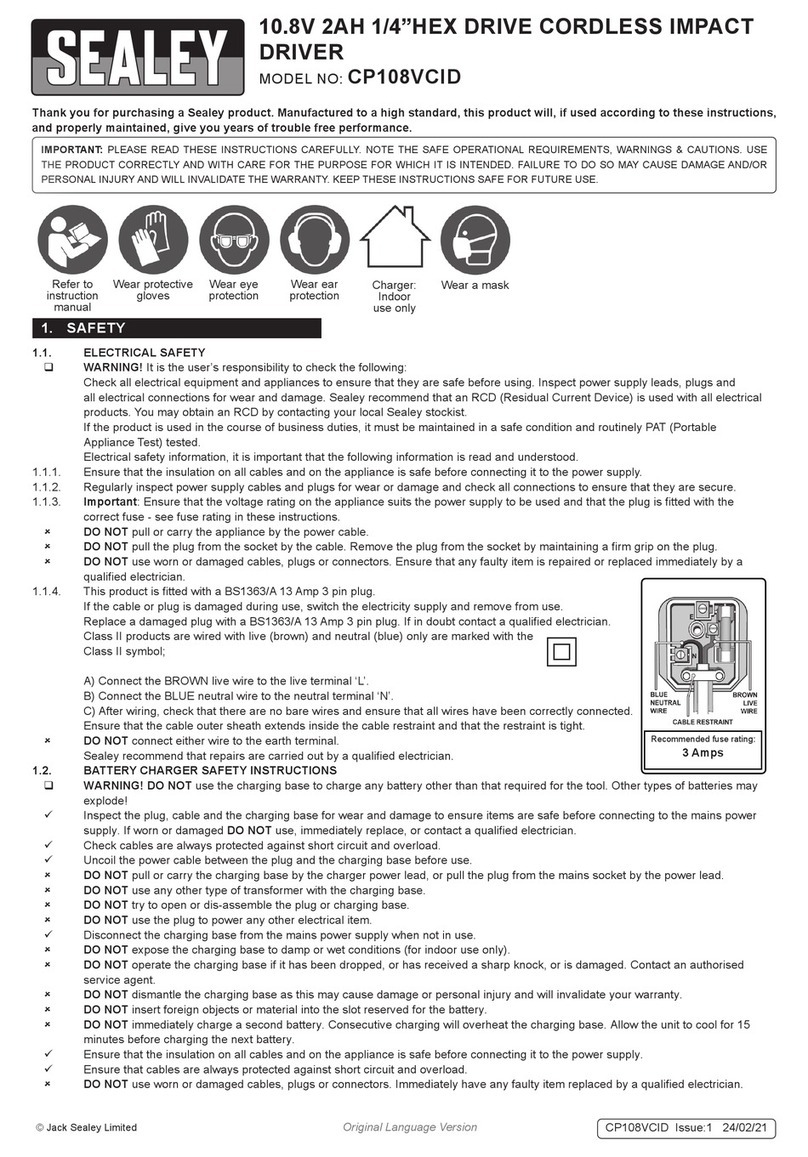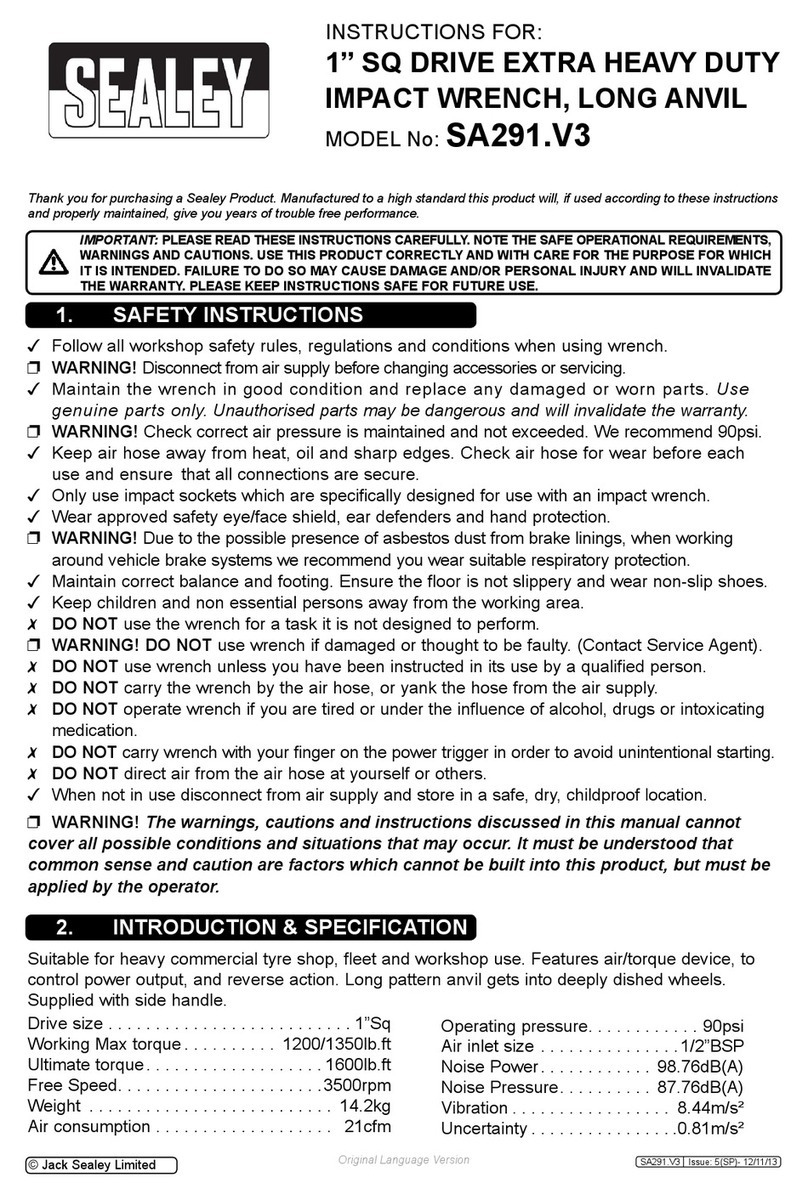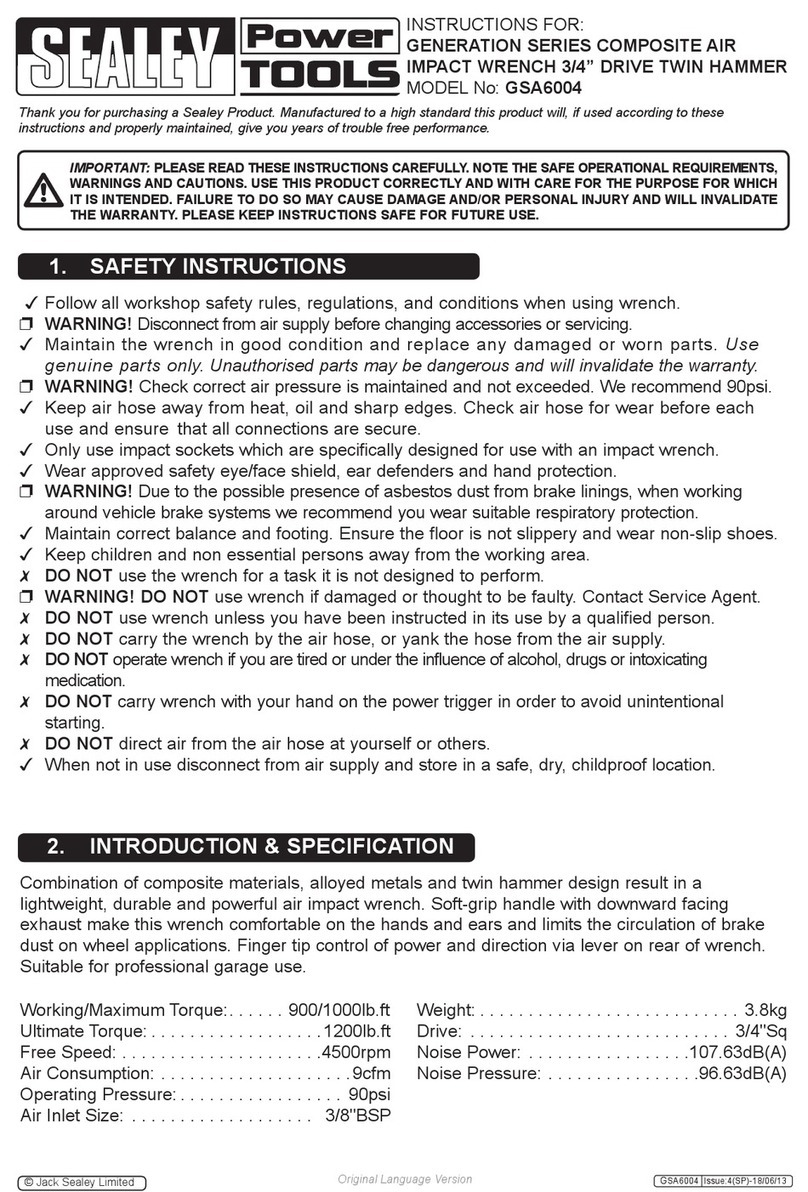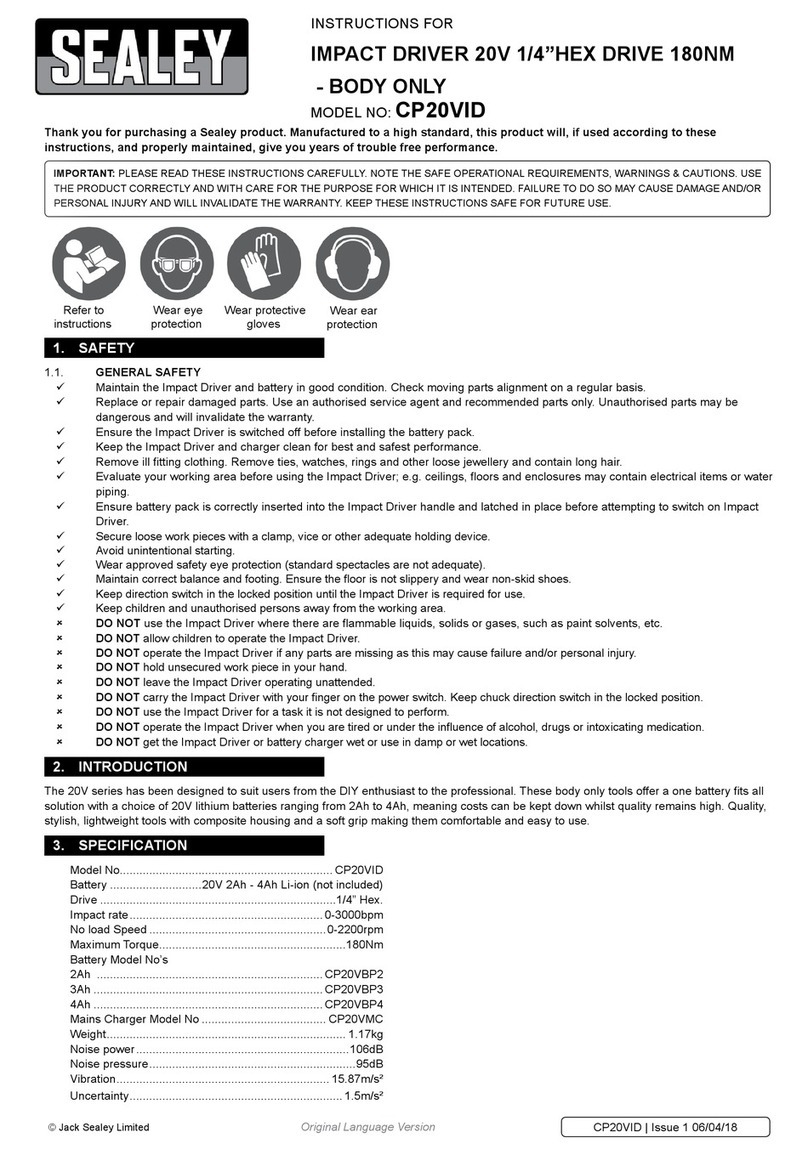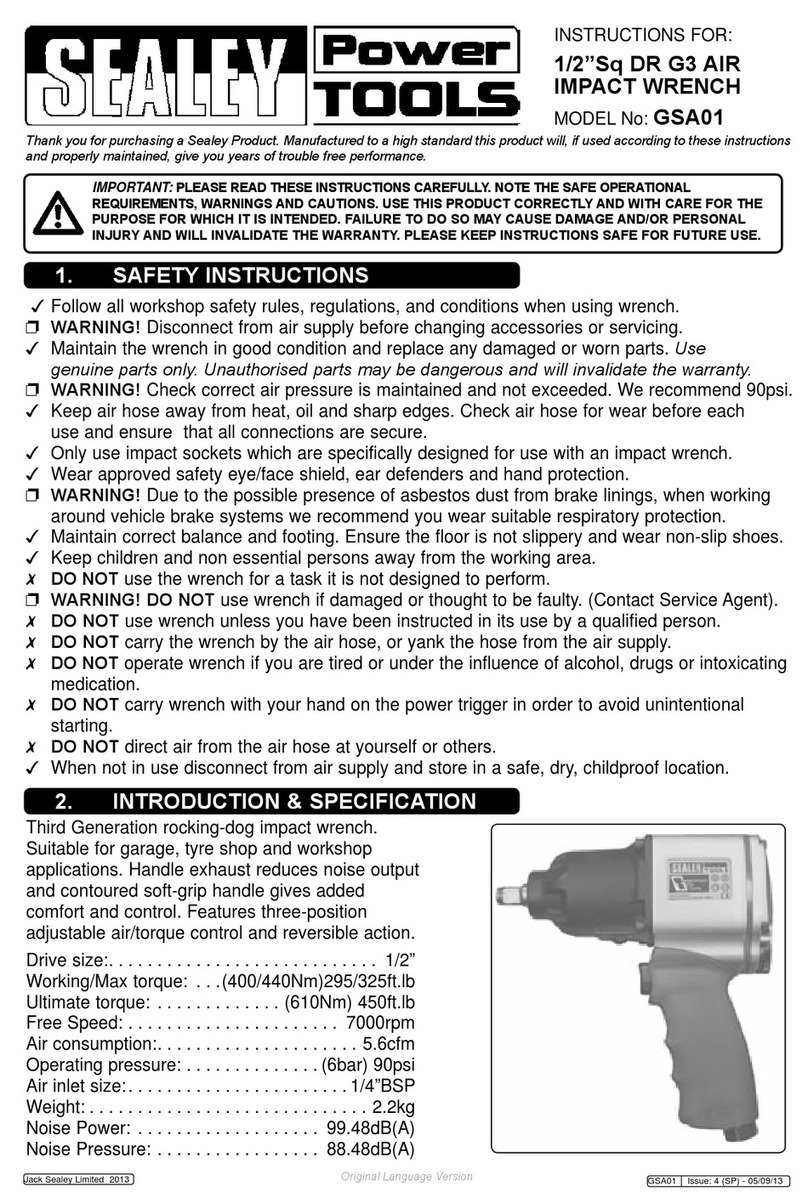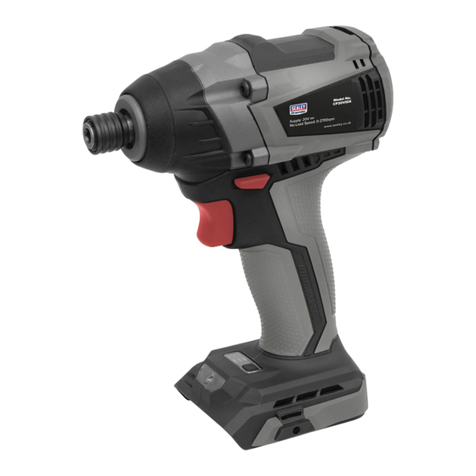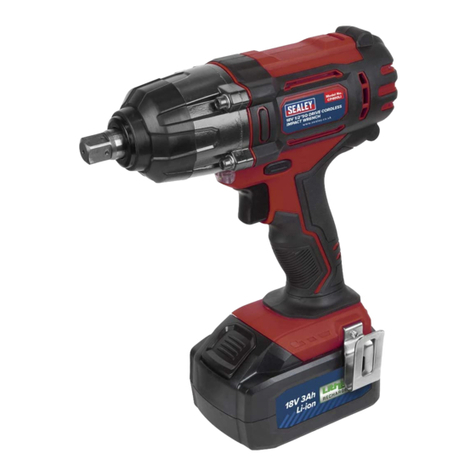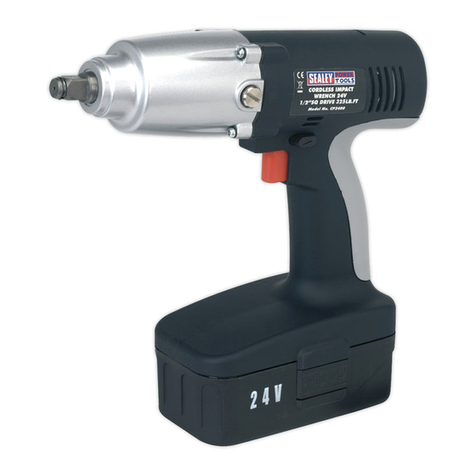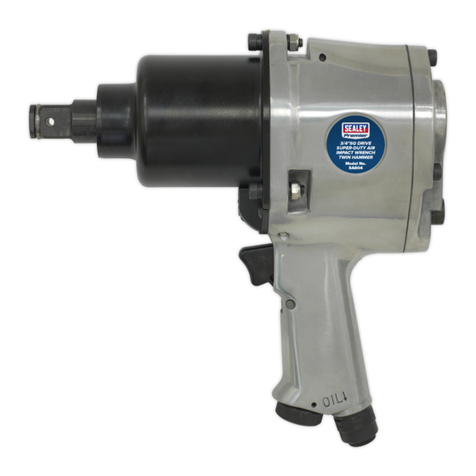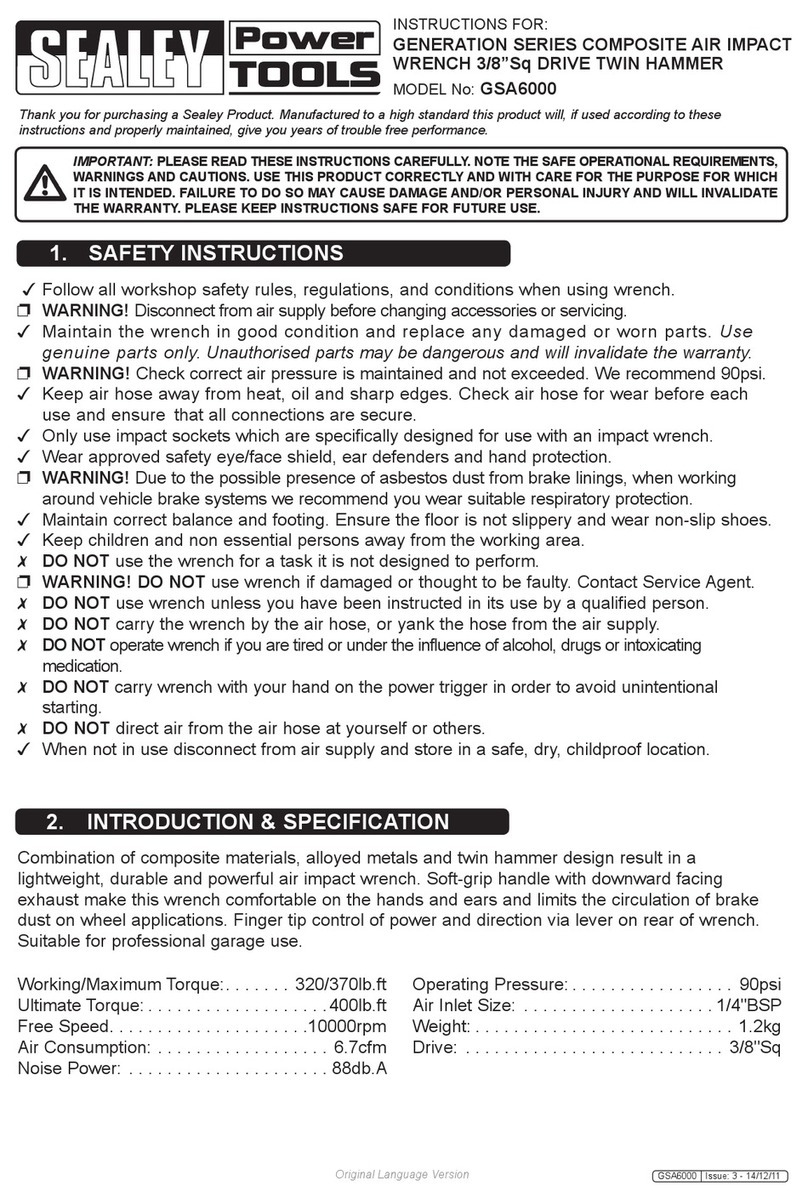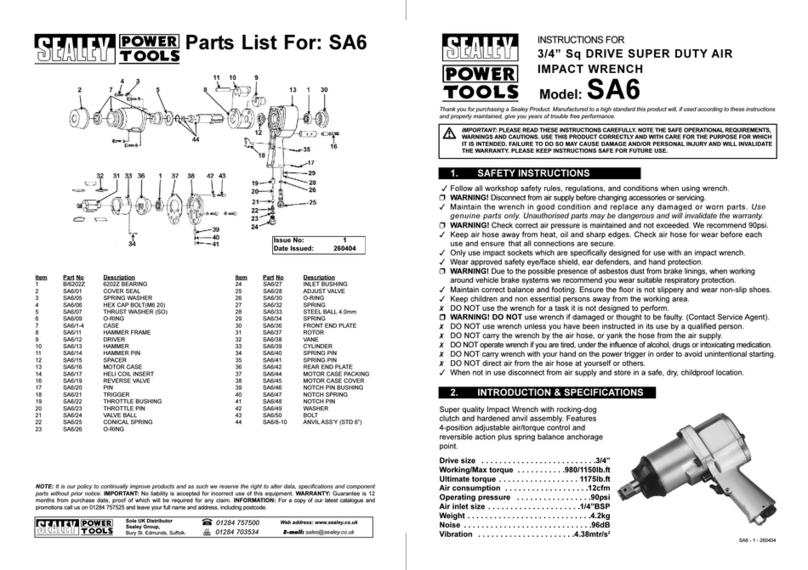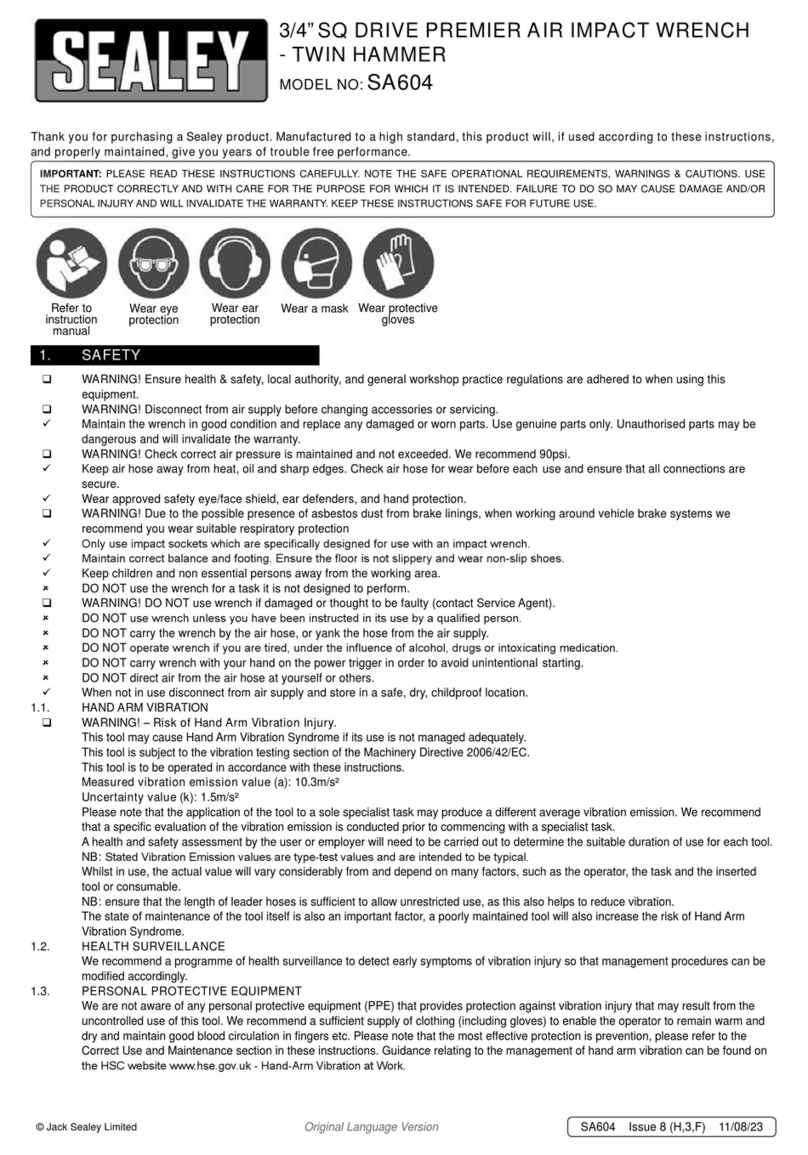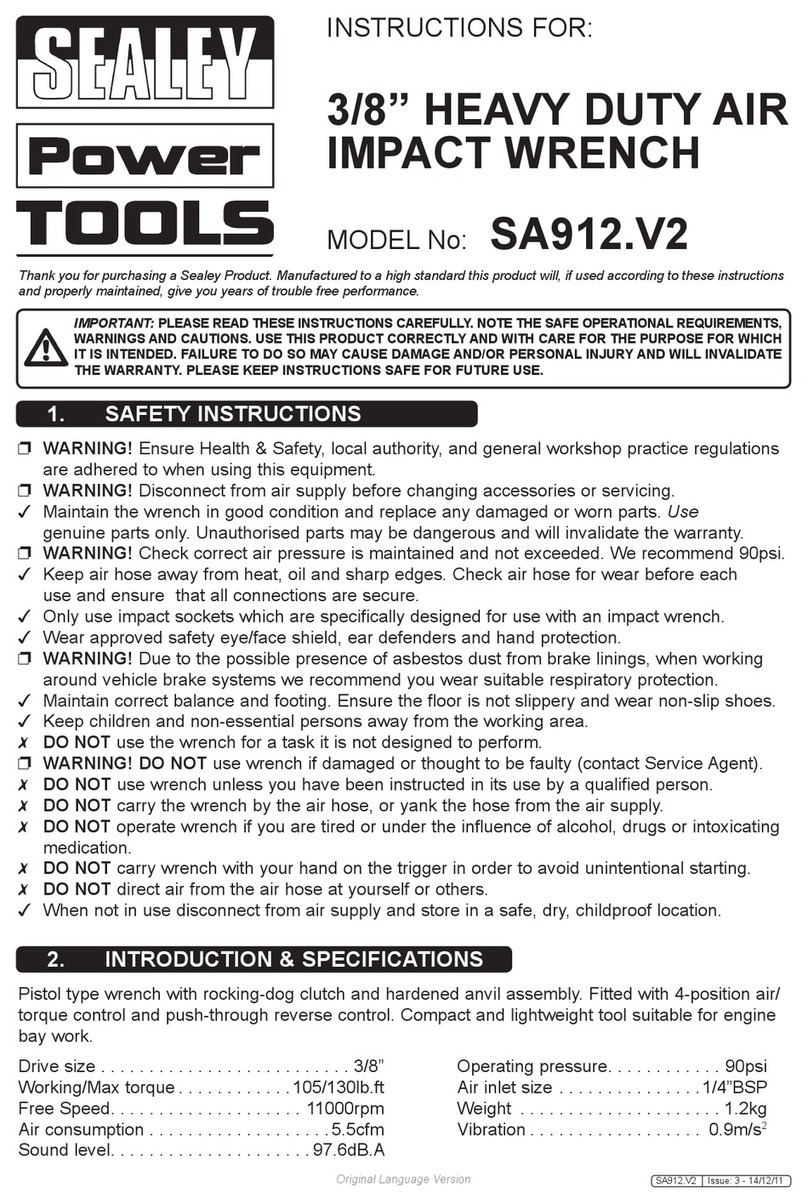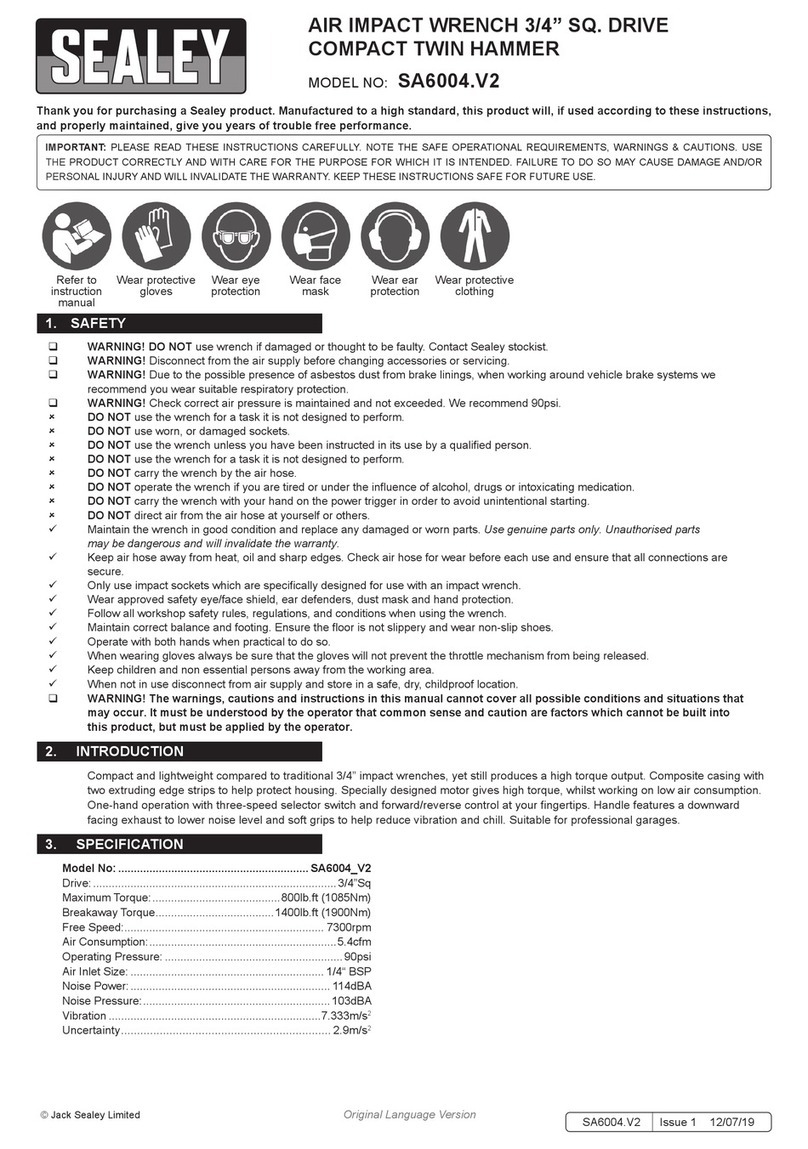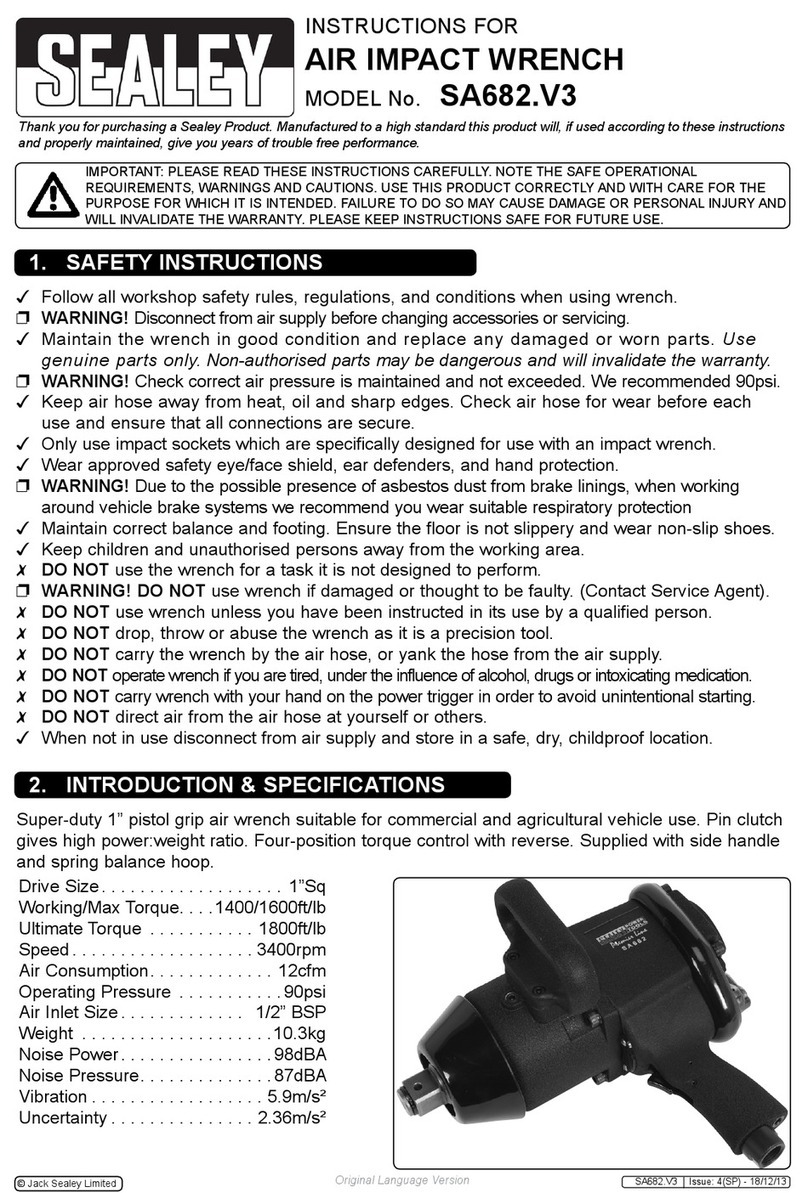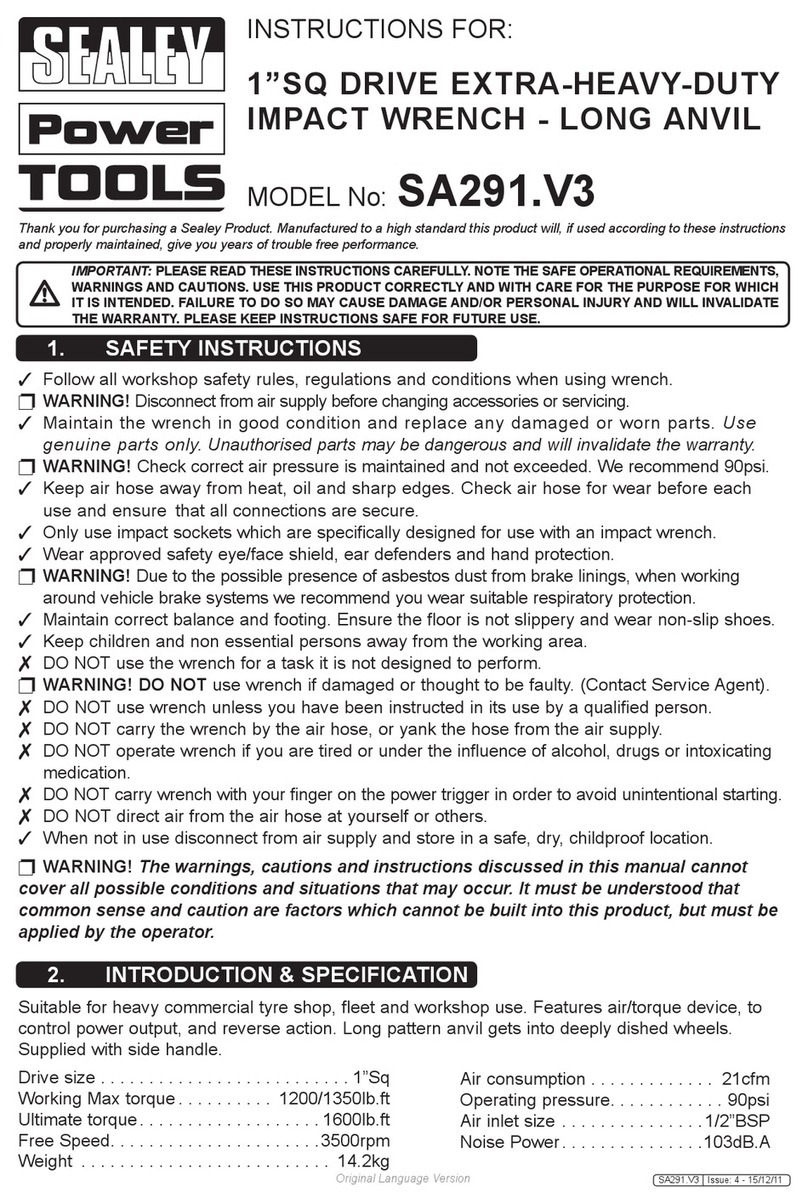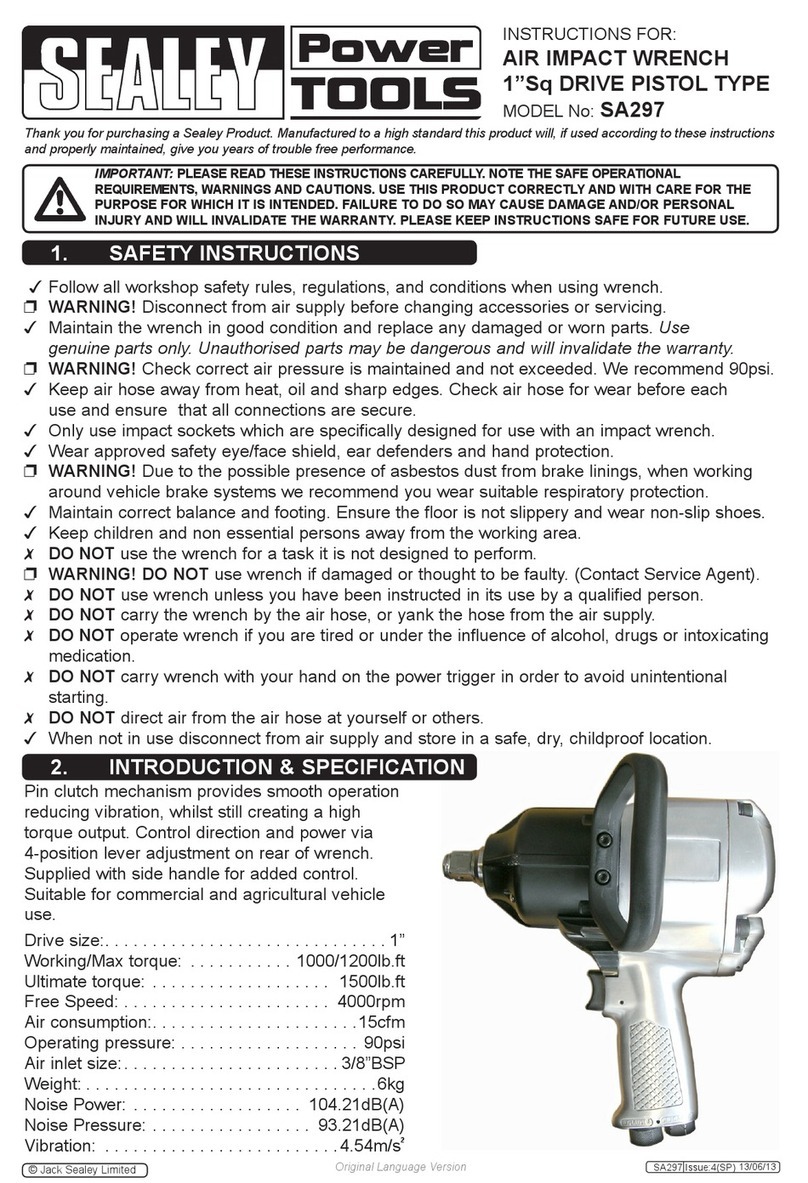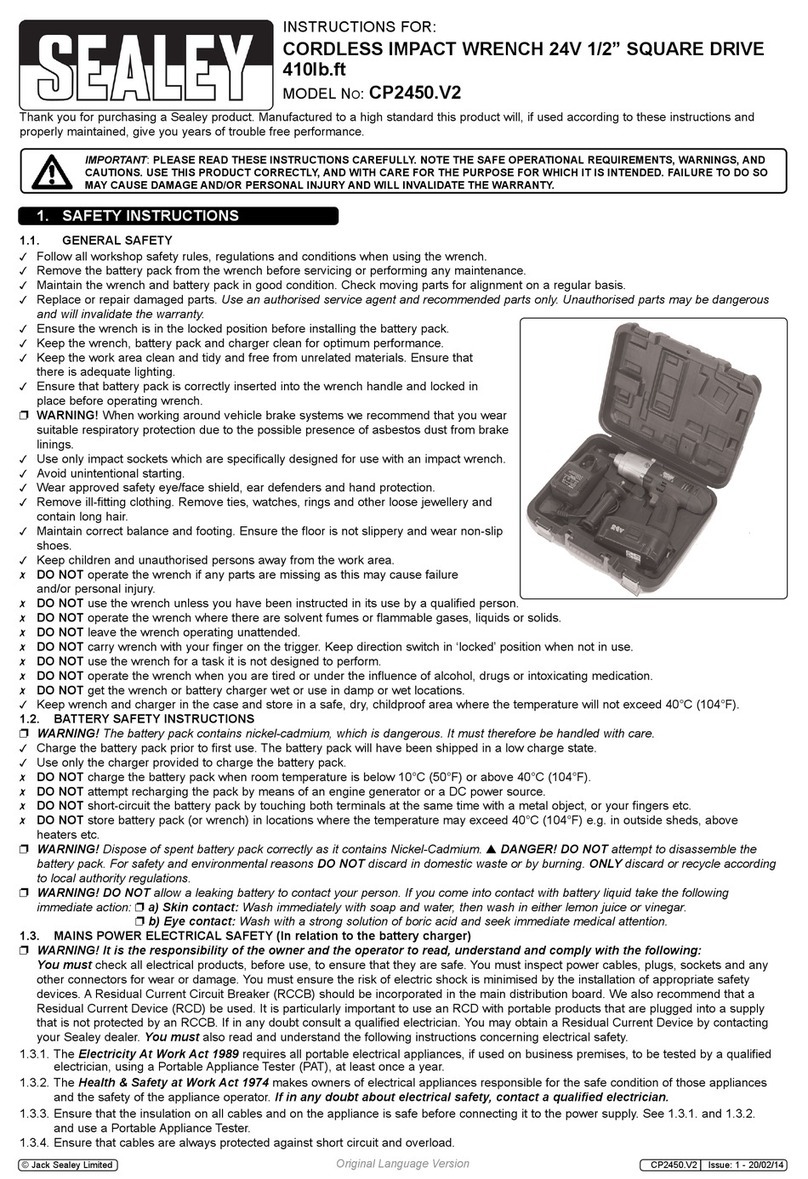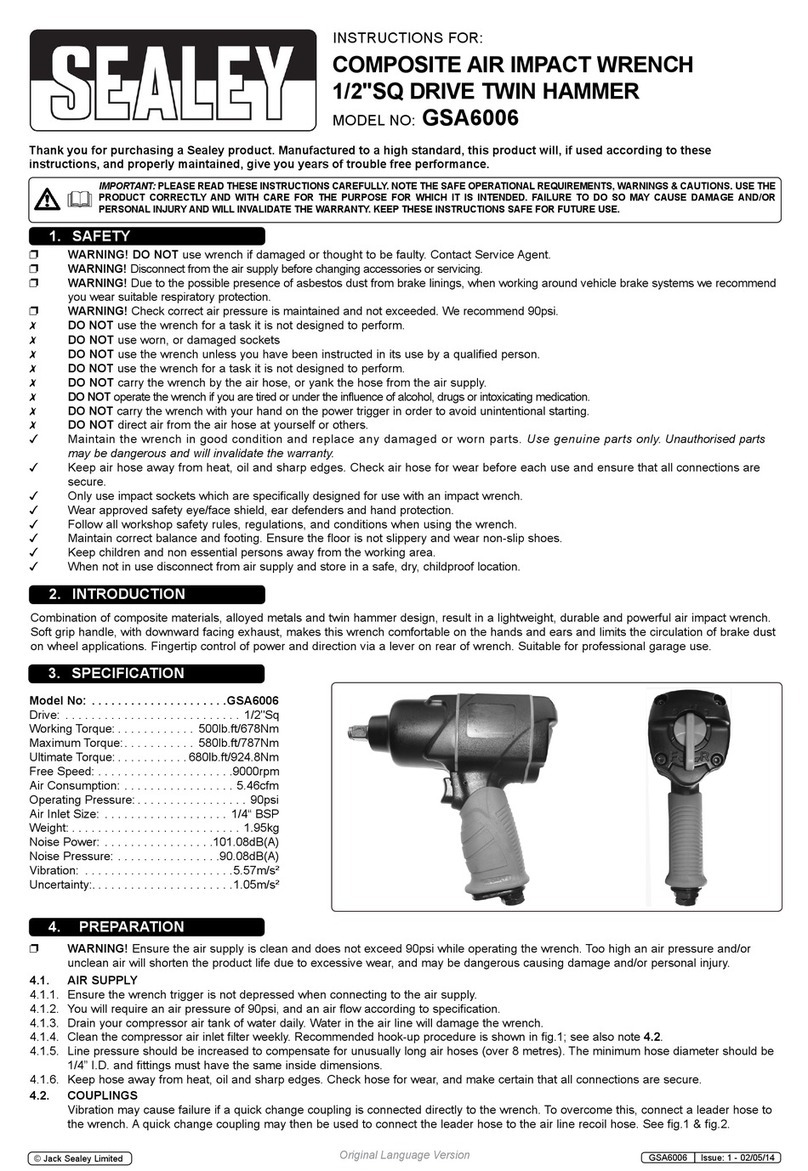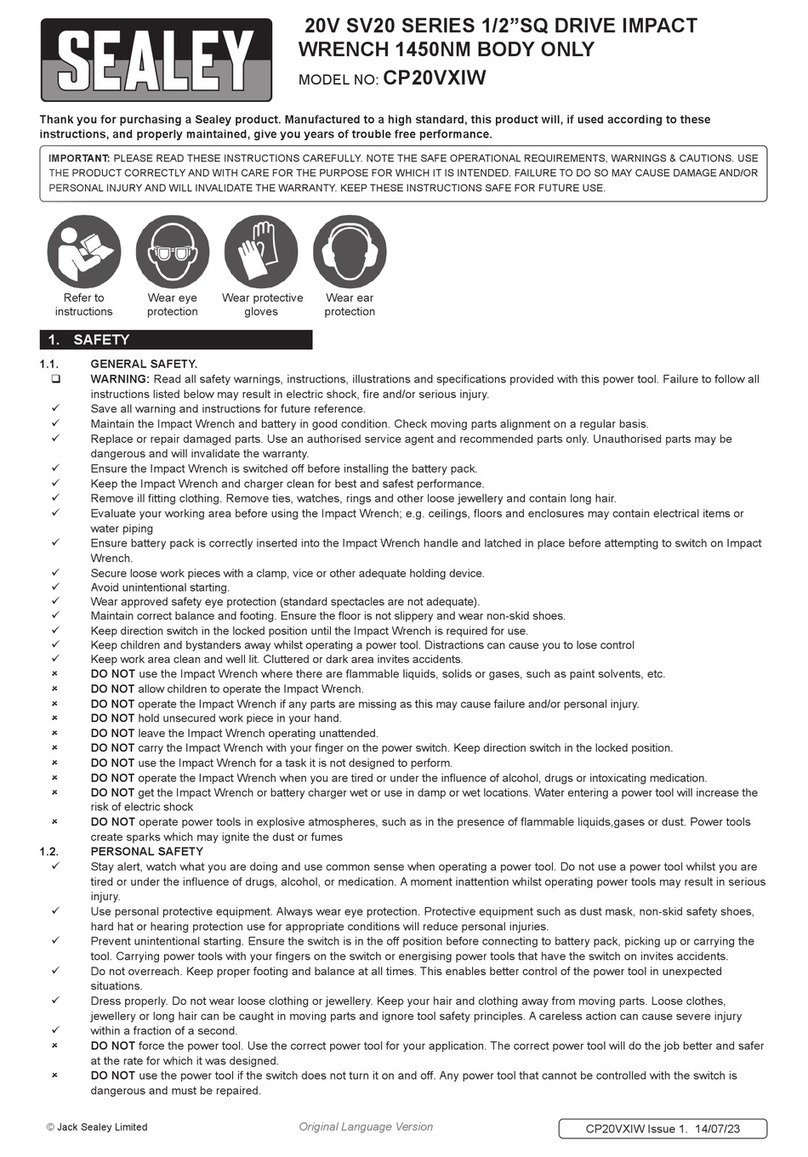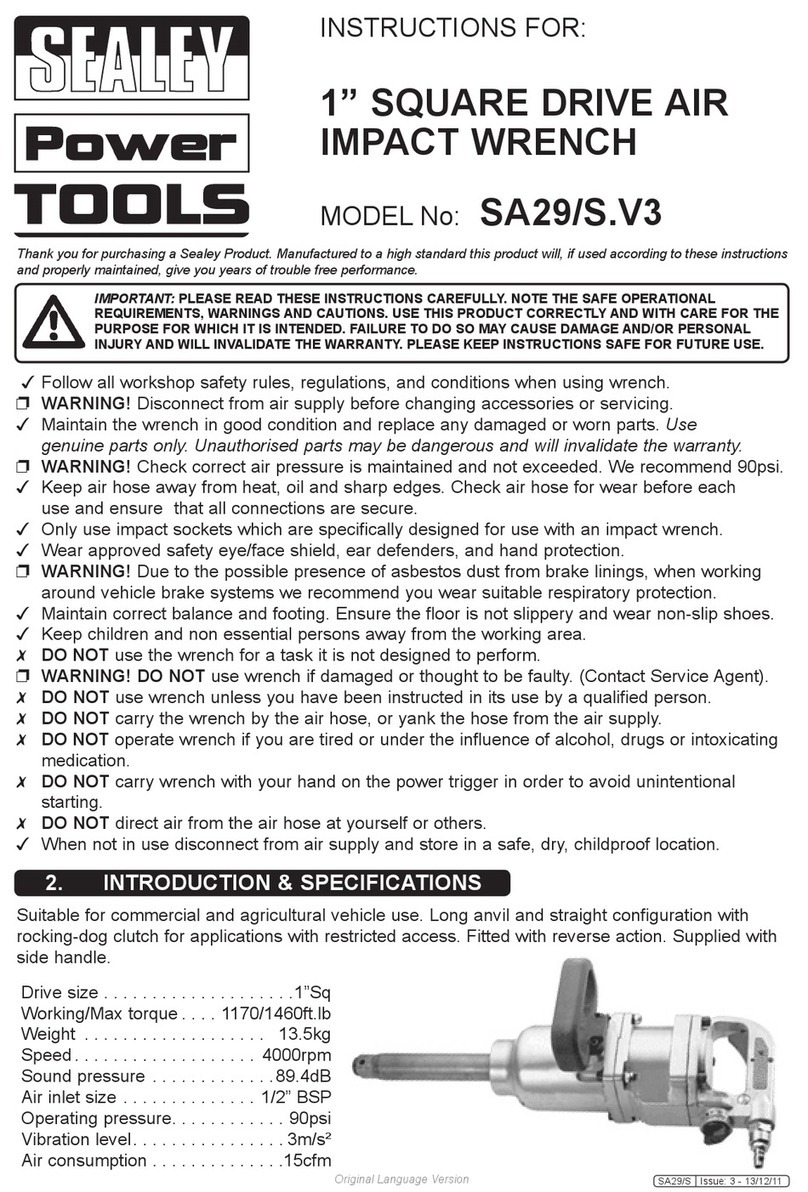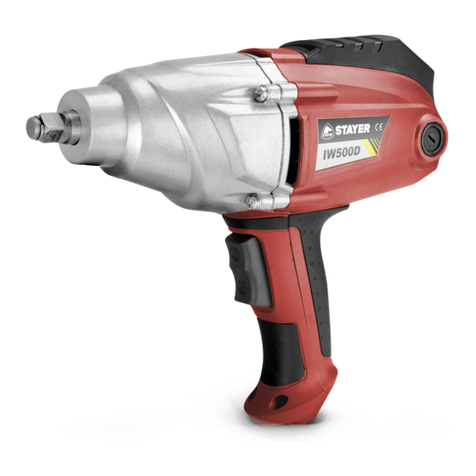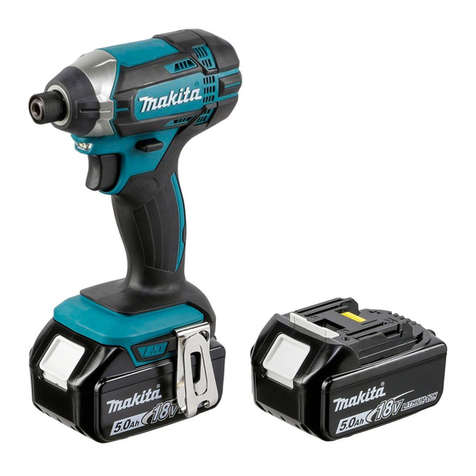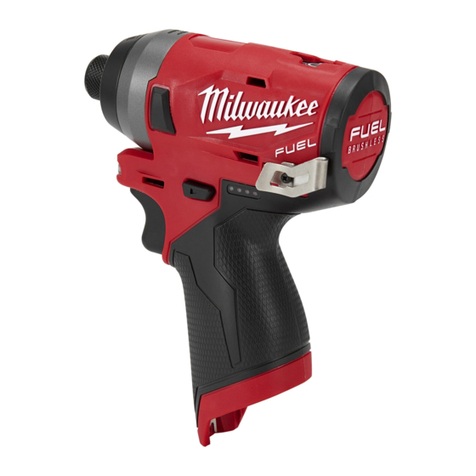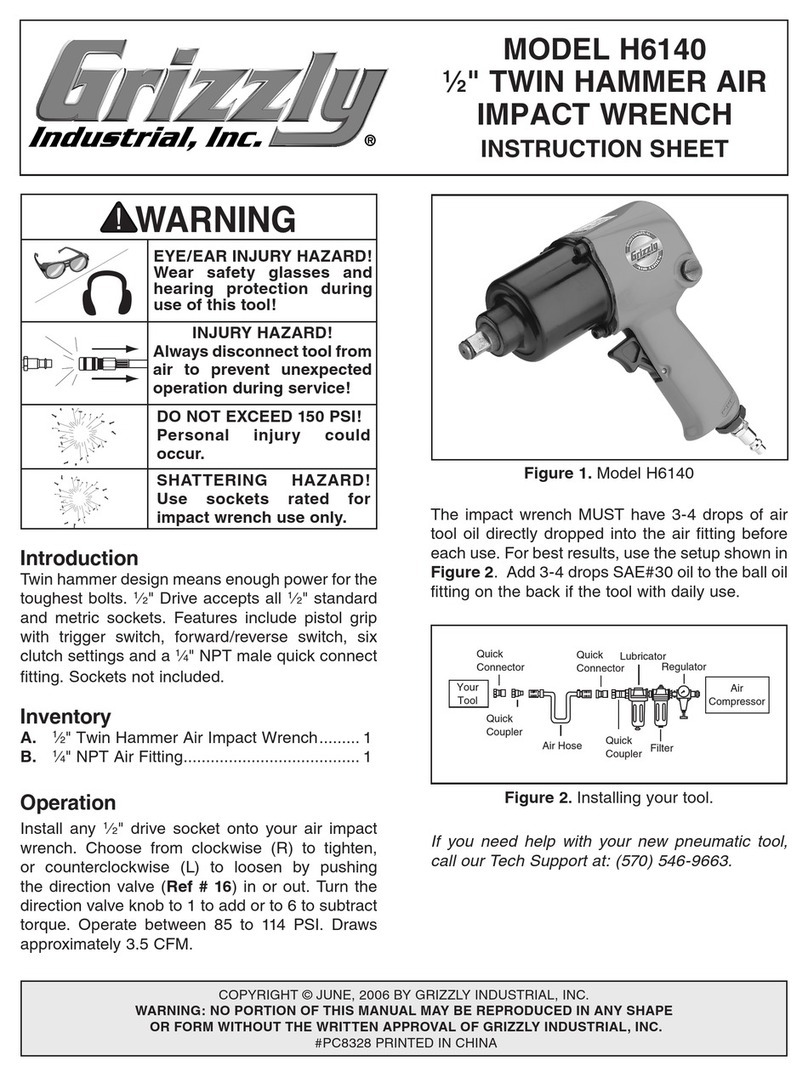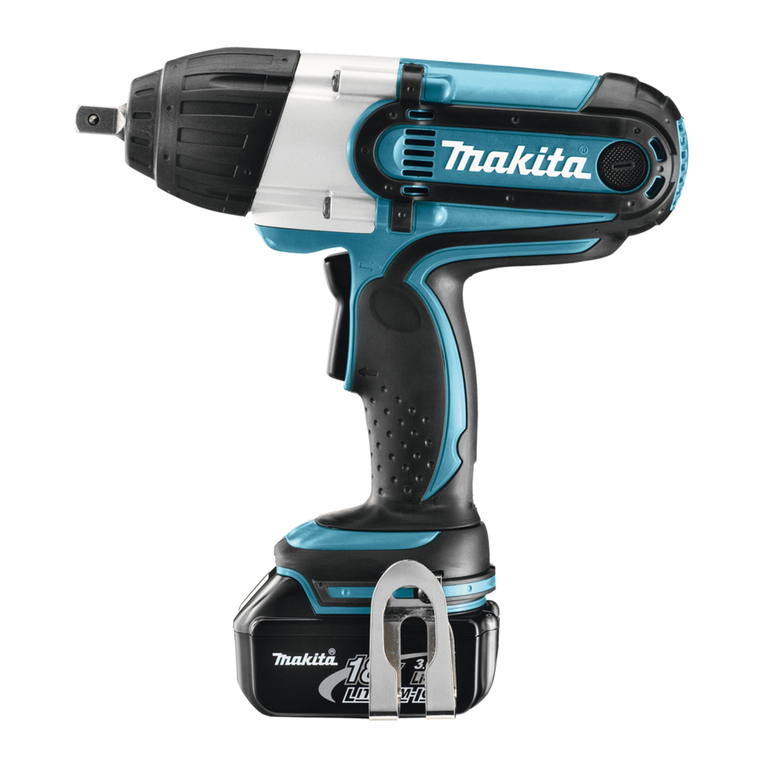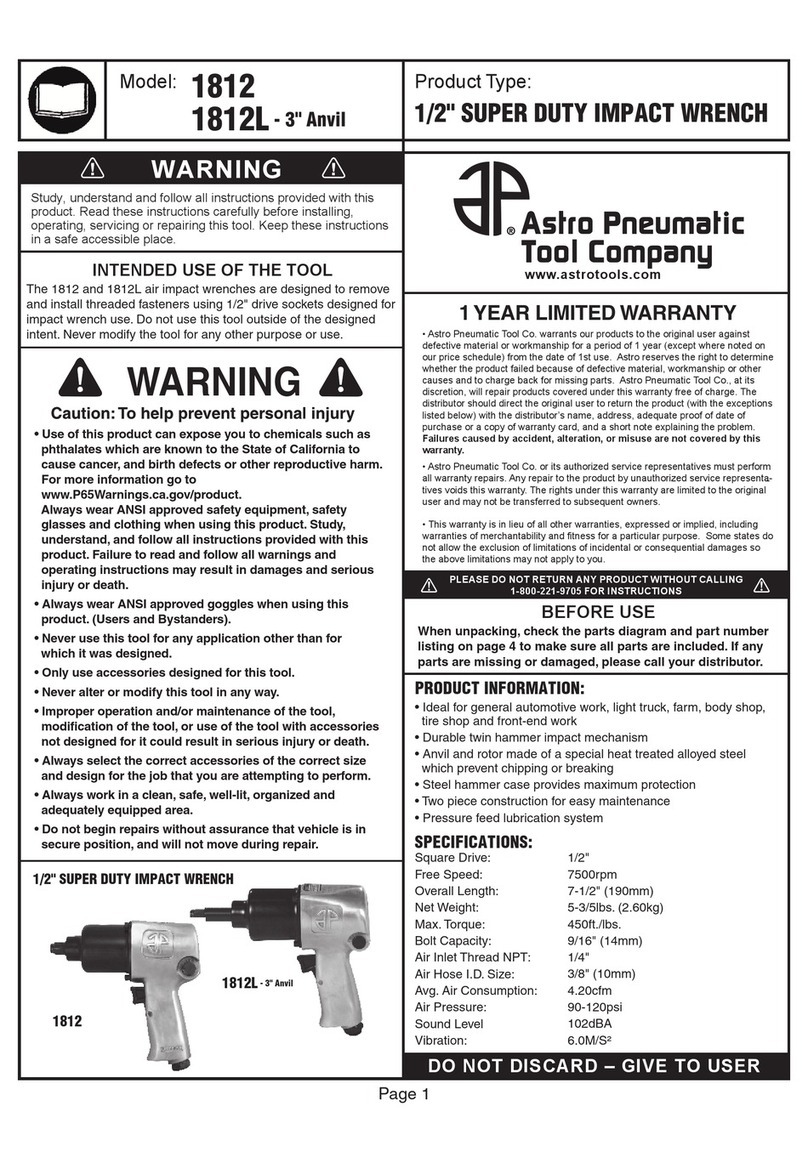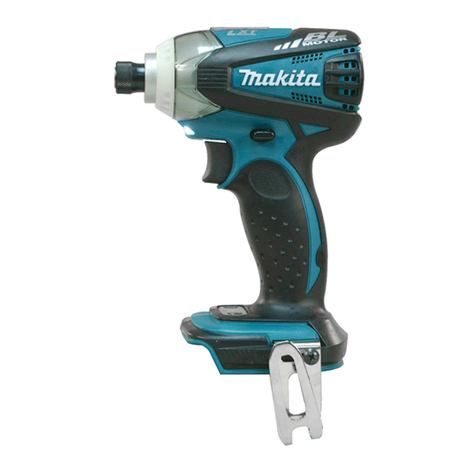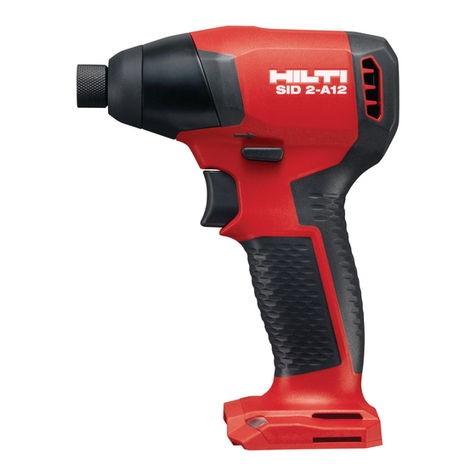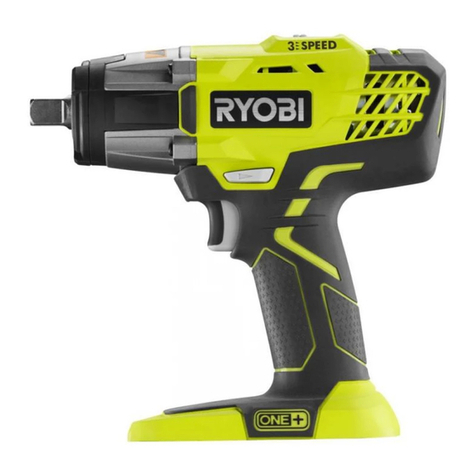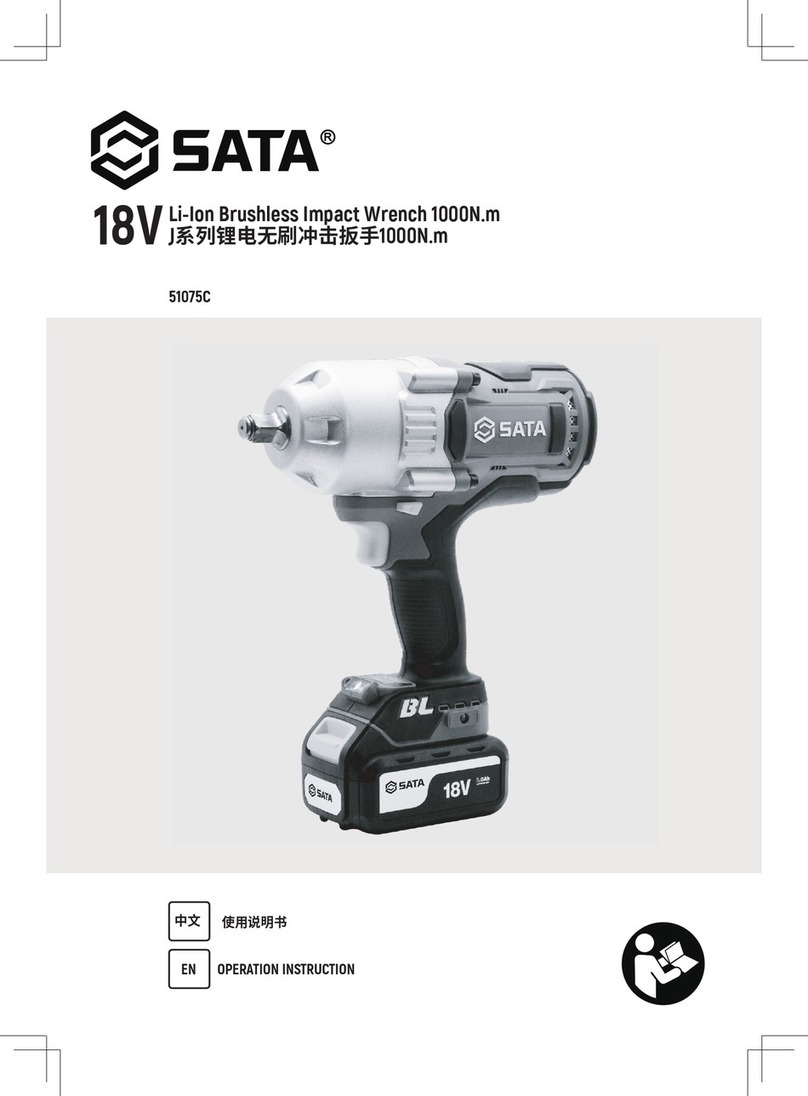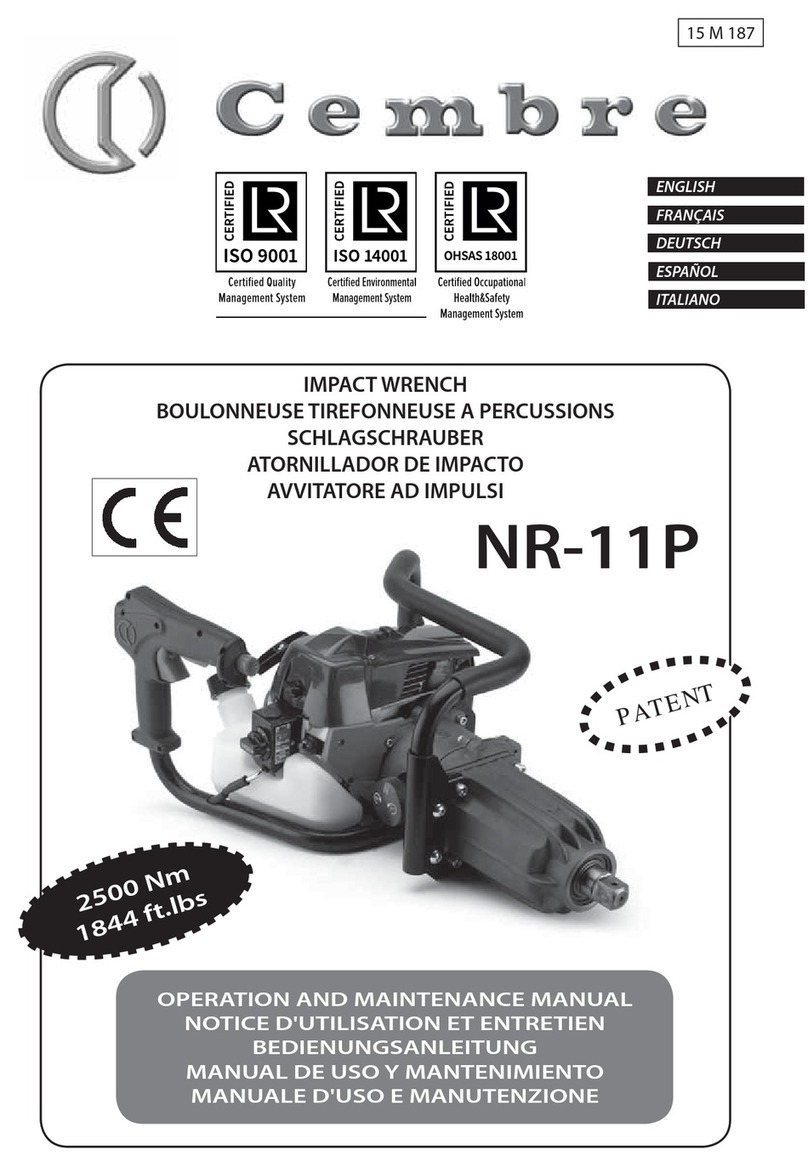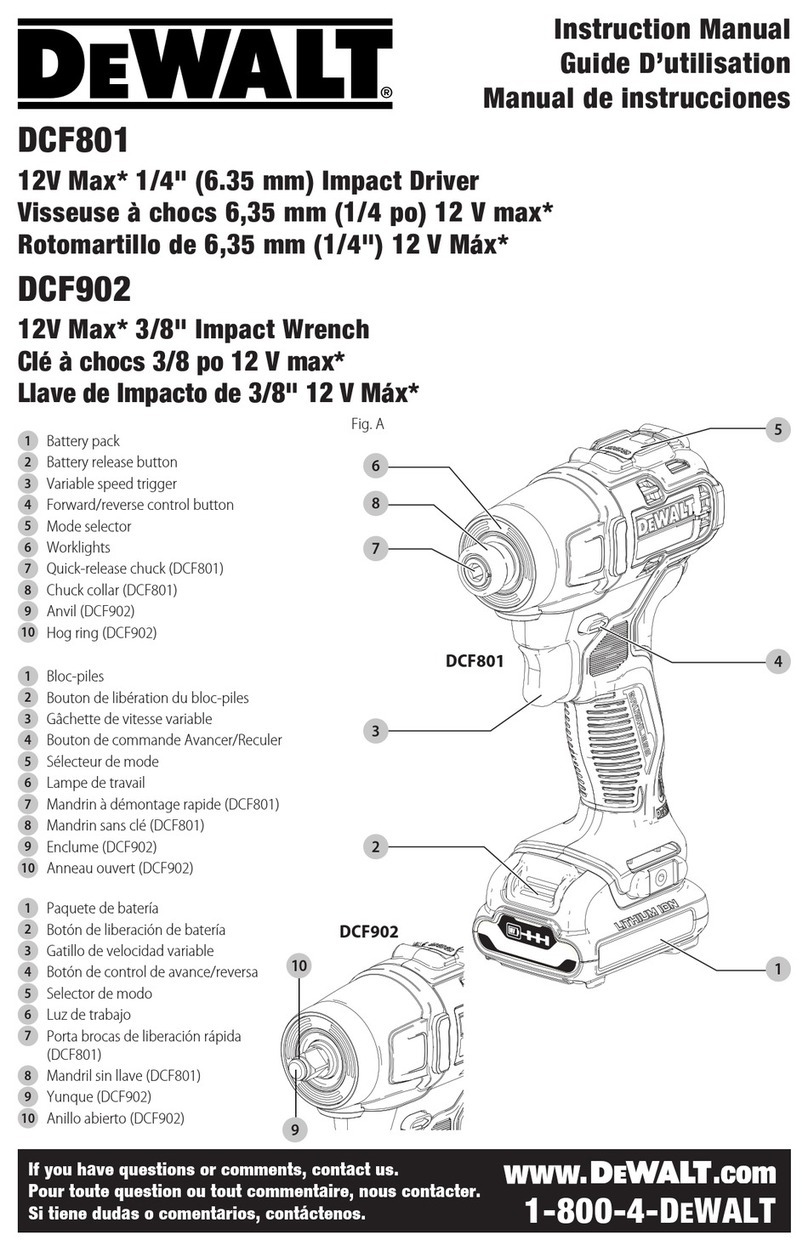
1. SAFETY INSTRUCTIONS
1.1 GENERAL SAFETY
3Follow all workshop safety rules, regulations and conditions when using the wrench.
3Remove the battery pack from the wrench before servicing or performing any maintenance.
3Maintain the wrench and battery pack in good condition. Check moving parts for alignment on a regular basis.
3Replace or repair damaged parts. Use an authorised service agent and recommended parts only. Unauthorised parts may be dangerous
and will invalidate the warranty.
3Ensure that the wrench is locked before installing the battery pack.
3Keep the wrench, battery pack and charger clean for optimum performance.
3Keep the work area clean and tidy and free from unrelated materials. Ensure that there is adequate lighting.
3Ensure that battery pack is correctly fitted to the wrench handle and latched in place before operating wrench.
pWARNING! When working around vehicle brake systems we recommend that you wear suitable respiratory
protection due to the possible presence of asbestos dust from brake linings.
3Use only impact sockets which are specifically designed for use with an impact wrench.
3Avoid unintentional starting.
3Wear approved safety eye/face shield, ear defenders and hand protection.
3Remove ill-fitting clothing. Remove ties, watches, rings and other loose jewellery and contain long hair.
3Maintain correct balance and footing. Ensure that the floor is not slippery and wear non-slip shoes.
3Keep children and unauthorised persons away from the work area.
7DO NOT operate the wrench if any parts are missing as this may cause failure and/or personal injury.
7DO NOT use the wrench unless you have been instructed in its use by a qualified person.
7DO NOT operate the wrench where there are solvent fumes or flammable gases, liquids or solids.
7DO NOT leave the wrench operating unattended.
7DO NOT carry the wrench with your finger on the trigger. Keep direction switch in locked position when not in use.
7DO NOT use the wrench for a task it is not designed to perform.
7DO NOT operate the wrench when you are tired or under the influence of alcohol, drugs or intoxicating medication.
7DO NOT get the wrench or battery charger wet or use in damp or wet locations.
3Keep wrench and charger in the case and store in a safe, dry, childproof area where the temperature will not exceed 104°F (40°C).
1.2 BATTERY SAFETY INSTRUCTIONS
pWARNING! The battery pack contains nickel-cadmium which is dangerous. It must therefore be handled with care.
3Charge the battery pack prior to first use. The battery pack will have been shipped in a low charge state.
3Use only the charger provided to charge the battery pack.
7DO NOT charge the battery pack when room temperature is below 50°F (10°C) or above 95°F (35°C).
7DO NOT attempt recharging the pack by means of an engine generator or a DC power source.
7DO NOT short-circuit the battery pack by touching both terminals at the same time with a metal object, or your fingers etc.
7DO NOT store battery pack (or wrench) in locations where the temperature may exceed 104°F (40°C ) e.g. in outside sheds, above
heaters etc.
pWARNING! Dispose of spent battery pack correctly as it contains nickel-cadmium.
s
DANGER! DO NOT attempt to disassemble the battery pack. For safety and environmental reasons DO NOT discard in domestic waste or
by burning. ONLY discard or recycle according to local authority regulations.
pWARNING! DO NOT allow a leaking battery to contact your person. If you come into contact with battery liquid take the following immediate
action: p a) Skin contact: Wash immediately with soap and water, then wash in either lemon juice or vinegar.
p b) Eye contact: Wash with a strong solution of boric acid and seek immediate professional medical attention.
1.3 MAINS POWER ELECTRICAL SAFETY (In relation to the battery charger)
pWARNING! It is the users responsibility to check the following:
You must check all electrical equipment and appliances to ensure that they are safe before using. You must inspect power supply leads,
plugs and all electrical connections for wear and damage. You must ensure the risk of electric shock is minimised by the installation of
appropriate safety devices. An RCCB (Residual Current Circuit Breaker) should be incorporated in the main distribution board. We
recommend that an RCD (Residual Current Device) is used with all electrical products. It is particularly important to use an RCD with
portable products that are plugged into a supply not protected by an RCCB. If in doubt consult a qualified electrician. You may obtain an
RCD by contacting your local Sealey dealer. You must also read and understand the following instructions concerning electrical safety.
1.3.1 The Electricity At Work Act 1989 requires all portable electrical appliances, if used on business premises, to be tested by a qualified
person, using a Portable Appliance T
ester (PAT), at least once a year.
1.3.2 The Health & Safety at Work Act 1974 makes owners of electrical appliances responsible for the safe condition of the appliance and
the safety of the appliance operator. If in any doubt about electrical safety, contact a qualified electrician.
1.3.3 DO ensure that the insulation on all cables and the product itself is safe before connecting to the mains power supply. See 1.3.1. above
and use a Portable Appliance Tester (PAT).
1.3.4 DO ensure that cables are always protected against short circuit and overload.
INSTRUCTIONS FOR:
19.2V IMPACT WRENCH
MODEL NO: CP1502.V2
Thank you for purchasing a Sealey product. Manufactured to a high standard this product will, if used according to these instructions and
properly maintained, give you years of trouble free performance.
IMPORTANT: PLEASE READ THESE INSTRUCTIONS CAREFULLY. NOTE THE SAFE OPERATIONAL REQUIREMENTS, WARNINGS, AND
CAUTIONS. USE THIS PRODUCT CORRECTLY, AND WITH CARE FOR THE PURPOSE FOR WHICH IT IS INTENDED. FAILURE TO DO SO
MAY CAUSE DAMAGE AND/OR PERSONAL INJURY AND WILL INVALIDATE THE WARRANTY.
CP1502.V2 - 1 - 220205
